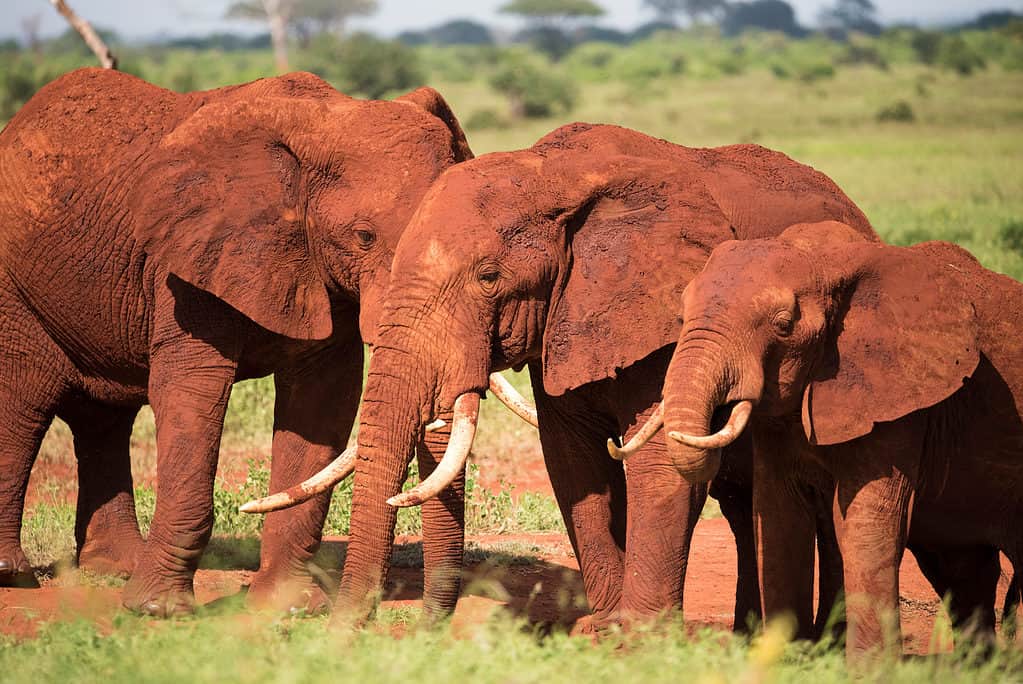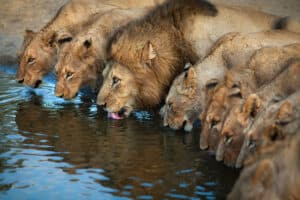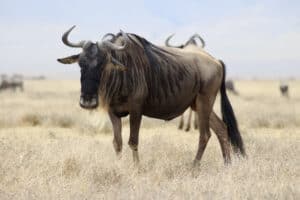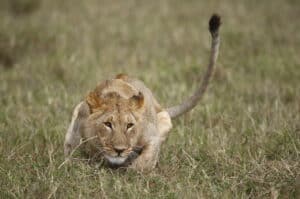The scariest sound for an animal on an African savannah is the sound of humans quietly talking. It’s even more fear-inducing to the wild animals than a lion’s snarls and growls. In a recent study, researchers discovered that wild animals are twice as scared of human voices than lion sounds.
Although lions are known as the king of beasts and thought to be the most fearsome of all predators, according to the study, humans are, in actuality, the super predators. Recent surveys have shown that humans kill prey at higher rates than other predators.
In the study, published in the journal Current Biology, scientists set up loudspeakers and cameras in a wildlife sanctuary in South Africa. The equipment was installed on trees near waterholes during the dry season. What the video footage revealed was surprising.
Savannah Animals Are Twice as Scared of Human Voices Than Lion Sounds
The animals were twice as likely to run when hearing humans speaking calmly. They abandoned their water holes 40% faster at a human’s voice than the sounds of lions, dogs, or guns. Some of the species in the experiment included leopards, giraffes, hyenas, kudu, warthogs, rhinoceroses, elephants, and impalas.

Wild animals abandoned their water holes 40% faster at a human’s voice than the sounds of lions, dogs, or guns.
©soft_light/Shutterstock.com
The animals can be seen in the video instantly dashing away or abandoning the water hole when they hear humans talking. One video from the research shows a leopard dragging its freshly killed dinner to find a shady spot to feast. Upon hearing the human voices, the leopard drops his lunch and runs away. In contrast, when lion sounds were played, many animals hesitated momentarily before hightailing it out of there.
According to the researchers, “Our results greatly strengthen the growing experimental evidence that wildlife worldwide fear the human “super predator” far more than other predators, and the very substantial fear of humans demonstrated can be expected to cause considerable ecological impacts”.
Even Elephants Are More Afraid of Humans Than Lions

Elephants will aggressively defend themselves against lions.
©Prasanth Aravindakshan/Shutterstock.com
Like the other animals, elephants fled when hearing human sounds. However, when lion sounds came across the loudspeakers, the elephants did something different. They bunched together and attacked the researcher’s equipment. Elephants are known to defend themselves and their babies aggressively against lions. But when human sounds were heard, rather than exhibit aggressive behavior, the lions abandoned the water hole.
What Are the Implications of the Research?
Savannah animals are at risk from illegal poaching, including the highly endangered Southern white rhinoceros. Loudspeakers with human voices could be mounted in high-risk poaching areas to help keep the animals away from poachers.
The photo featured at the top of this post is © SteffenTravel/Shutterstock.com
Thank you for reading! Have some feedback for us? Contact the AZ Animals editorial team.






